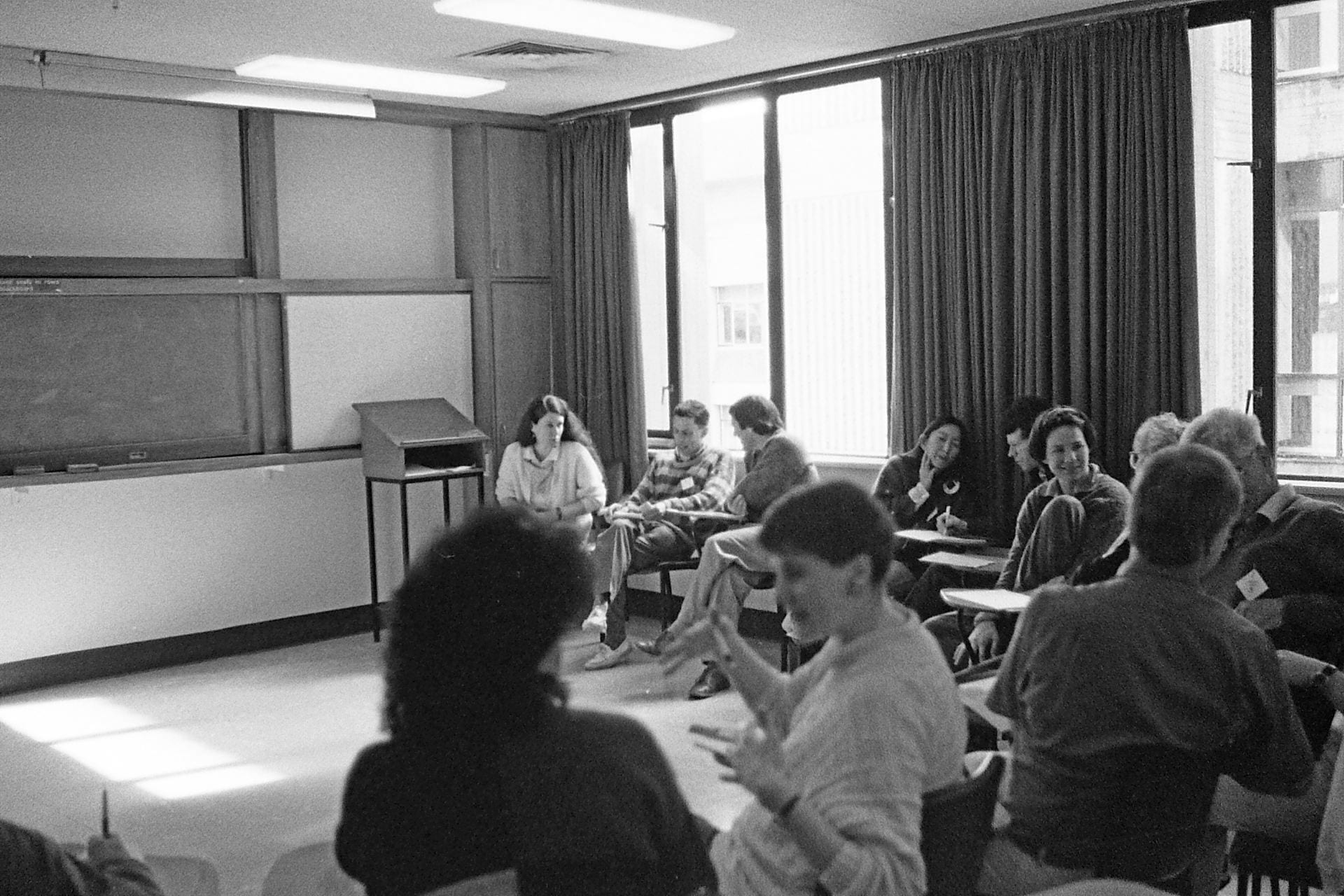
Ross McCormick, 1973
Ross McCormick joined the Goodfellow Unit as the Acting Director in 1998. Six months later, he became the inaugural Goodfellow Postgraduate Chair in General Practice and the second Director of the Goodfellow Unit. The Goodfellow Unit, the University of Auckland and the Royal New Zealand College of General Practitioners had established the Goodfellow Postgraduate Chair in the first Memorandum of Agreement in August 1996. The appointed Chair also carried the Directorship and aimed to provide a strong academic base for staff. In the late-2000s, however, the growth of the Goodfellow Unit led the University of Auckland to divide the Chair and Director into two separate roles.
Ross McCormick did not initially plan to become a doctor. He had received a University National Scholarship after high school and completed a BSc in Chemistry and Mathematics in 1965 at the University of Auckland, followed by an MSc in Chemistry in 1966. He then pursued a PhD but realised, ‘I really didn’t want to spend the rest of my life in a laboratory’. It was a chance encounter with Professor Cecil Lewis, the first Dean of the Medical School, in 1968 that cemented his medical path. He recalled, ‘I said to him “if I was to apply for medicine would I get in?” and he said, “Oh yeah”. No Dean would ever say that these days.’1 Ross started medical training in 1970 during the final year of his PhD.
Ross became involved with the Goodfellow Unit – which was the ‘only provider of short courses at that time’ – in 1979 when he started to work as a GP in Parnell. He described the courses as especially valuable for recent university graduates who had not yet gained membership of the RNZCGP. He attended the short courses as GPs ‘need to know something about everything and you need to be reasonably skilled at history taking and examination but also in knowing when to refer and when not to refer’.

Dr Ross McCormick (pictured in front of the window) attending one of the short courses.
The courses not only offered GPs with important opportunities for professional development but also created a chance for them to network and socialise with other attendees. He explained, ‘there were plenty of us and we’d all meet each other and have a chat and enjoy each other’s company, but we’d also hear some very good presentations often put on by GPs, but maybe put on by specialists with GP input’
Ross McCormick on the short courses
Prior to joining the Goodfellow Unit, Ross McCormick had worked as an advisor to the area health board in 1989, and then as a medical director for primary care for the Regional Health Authority in the early-1990s until they were amalgamated under Jim Bolger’s National government. He joined the University of Auckland as an Associate Professor in General Practice in the mid-1990s and was appointed as the Acting Director for the Goodfellow Unit in 1998. He became the Director six months later.
As Director, McCormick was closely involved in the Alcohol, Tobacco and Other Drugs Project being run through the Unit, and had previously worked alongside Barham, Tracey, and clinical psychologist Peter Adams to develop the initial funding application for the project in the early-1990s. He had worked with drug and alcohol rehabilitation centres, conducted drug and alcohol assessments for regulatory bodies including the Air New Zealand Civil Aviation Authority and the Nursing Council, and was a Fellow of the Chapter of Addiction Medicine. The project aligned well with his expertise in drug and alcohol management. He also took responsibility for increasing the research output of the Unit and establishing the Goodfellow Symposiums.
Peter Huggard became the Assistant Director of the Goodfellow Unit in the mid-2000s. He described Ross McCormick as a ‘good person to work for. He said that Ross liked to push boundaries. I used to call him my “academic cowboy colleague” because he was willing to try things’.2
Others also attested to the flexibility of the Goodfellow Unit in enabling them to launch new projects that might otherwise not have survived the University funding process. In this regard, Ross explained that Douglas Goodfellow’s ‘quiet backroom support and guidance’ was instrumental during his term as Director.3 Douglas Goodfellow remained an active member of the Goodfellow Foundation until 2011, and ‘listen[ed] very carefully to suggestions on how to improve continuing education for GPs and then step in if there was trouble finding funding’.4
Dr McCormick left the Goodfellow Unit in 2008 when he was appointed to the role of Associate Dean Postgraduate at the University of Auckland. He reflected that the Goodfellow Unit had ‘very enthusiastic staff that are keen to ensure that general practice is well serviced and kept up to date’.5
Retiring in December 2014, Ross McCormick was made Emeritus Professor.
